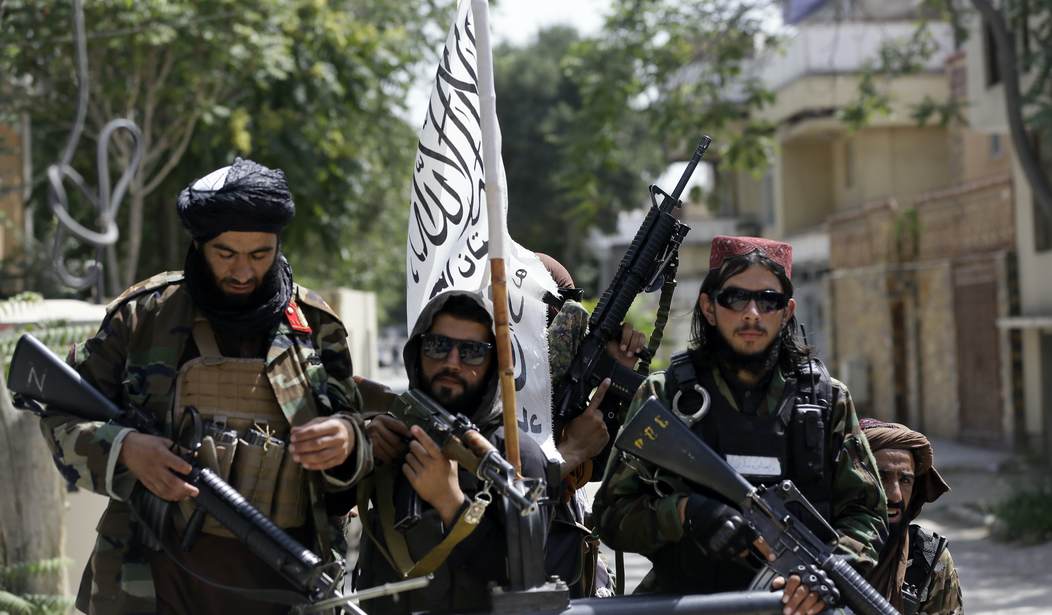PARIS -- Now that America's 20-year war in Afghanistan is ending, it's a good opportunity to assess what worked and what didn't.
First, to the success! (Try not to blink, because you might miss this part.)
The original mission of the post-9/11 military invasion was to overthrow the Taliban and neutralize al-Qaeda and Osama bin Laden. That mission was accomplished. Bravo to the brave men and women in uniform who succeeded based on the dictionary definition of the tasks initially outlined.
Except that the initial mission was itself misguided. Soldiers were following orders issued by people who were either incompetent, oblivious or corrupt. Those calling the shots knew that the 9/11 attackers were mostly Saudis, yet they continued to emphasize Saudi Arabia's ally status while bombing a country that was not Saudi Arabia. They knew that the Taliban didn't attack the U.S. homeland or have the capacity to do so, yet they led the American people to believe that these guys in flip-flops were capable of doing so by conflating them with al-Qaeda.
And speaking of al-Qaeda, its leader, Osama bin Laden, was designated as the figure onto which all public outrage crystallized, while American leaders omitted the inconvenient fact that bin Laden was trained in the early 1980s as the leader of pro-American proxy fighters in the CIA-led war in Afghanistan against the Soviet Union.
The question that should have been asked at the outset was why the U.S. was suddenly concerned about a terrorist that it had created, and why anyone should trust that going back into the same country and creating more assets to fight more scapegoats (the Taliban, in this case) wouldn't backfire again. Judging by the Taliban's shiny new American weapons, history has repeated itself.
Recommended
So, yes, for our soldiers it was a job well done. It wasn't their performance that failed, but rather the poorly conceived mission and strategy designed by establishment cronies.
Which brings us to the failures.
The U.S. and its allies had 20 years to cut their losses and should have done so years ago. So why didn't they? Our leaders were clearly interested in sticking around until they could get a return on investment. That would have involved setting up a puppet government in Afghanistan and then securing guarantees of access to the country's unexplored mineral deposits, which American officials have assessed at $1 trillion. That includes one of the world's largest reserves of lithium, from which electric car batteries are made.
It was clearly taking longer than anticipated to shake those interests loose, particularly with many of the mining concessions having been awarded to China, which dragged its feet acting on them due to the endless war. So we stuck around pretending to "democracy-build," all while trying to figure out a way to get our hands on the treasure.
About the only decision-maker who was blunt about the underlying economic interest was former U.S. President Donald Trump, who reportedly told officials at a White House meeting in July 2017 that the U.S. should demand access to Afghanistan's mineral wealth in exchange for continued support of the Afghan government, according to Reuters. Everyone else pretended that it was about counterterrorism.
Which brings us to yet another problem.
We really need a less propagandistic definition for terrorism. When you occupy a country for 20 years and a group of people who live there attack you inside their own country and on the other side of the world, it's not terrorism but rather self-defense against a foreign invader/occupier. When two groups of fighters -- both citizens of the same country -- are fighting with each other, it's not terrorism if the side that you support happens to be losing.
Afghanistan isn't the only place where we've seen terrorism evoked as a pretense to defend U.S. proxy fighters losing a civil war. The same thing happened in Syria, where the U.S.-backed "Syrian rebels" lost to the Syrian army, which was casually described as a group of terrorists as they fought to secure their own country. In reality, the terrorists were the "rebel" combatants supported by the U.S. and its allies.
So maybe we should stop taking the U.S. government's word for it, start demanding more details whenever terrorism is evoked in relation to a foreign entity, and start asking what interest our government might have in manipulating public opinion in favor of regime change and the foreign fighters it's using to pursue its interests -- which usually involve gaining control of a valuable asset.
And finally, maybe we should be a lot more skeptical about the use of a humanitarian pretext for war, or at least the well-worn notion that war is the first step toward democracy-building. It should be obvious by now that the concept is fatally flawed -- and it's particularly obvious to the women of Afghanistan who waited 20 years for democracy to flourish under Western occupation.
Rachel Marsden is a columnist, political strategist and host of an independently produced French-language program that airs on Sputnik France. Her website can be found at http://www.rachelmarsden.com.

























Join the conversation as a VIP Member